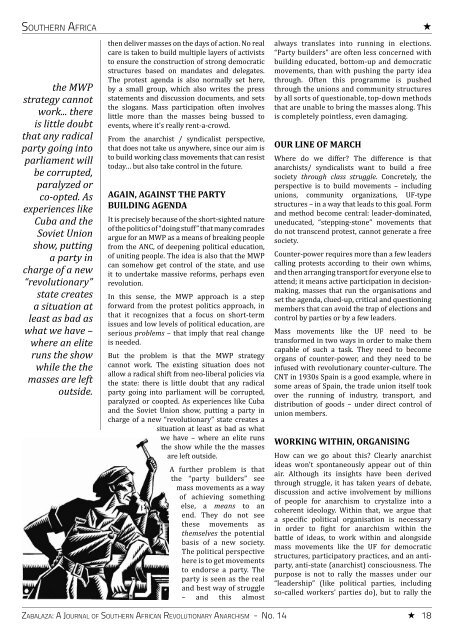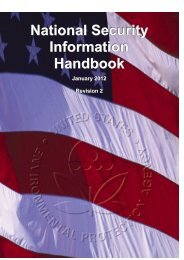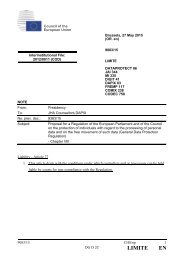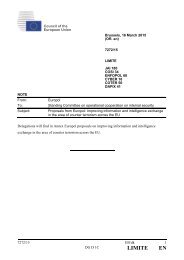[BCBMB[B
zabalaza14
zabalaza14
You also want an ePaper? Increase the reach of your titles
YUMPU automatically turns print PDFs into web optimized ePapers that Google loves.
SOUTHERN AFRICAthe MWPstrategy cannotwork... thereis little doubtthat any radicalparty going intoparliament willbe corrupted,paralyzed orco-opted. Asexperiences likeCuba and theSoviet Unionshow, puttinga party incharge of a new“revolutionary”state createsa situation atleast as bad aswhat we have –where an eliteruns the showwhile the themasses are leftoutside.then deliver masses on the days of action. No realcare is taken to build multiple layers of activiststo ensure the construction of strong democraticstructures based on mandates and delegates.The protest agenda is also normally set here,by a small group, which also writes the pressstatements and discussion documents, and setsthe slogans. Mass participation often involveslittle more than the masses being bussed toevents, where it’s really rent-a-crowd.From the anarchist / syndicalist perspective,that does not take us anywhere, since our aim isto build working class movements that can resisttoday… but also take control in the future.AGAIN, AGAINST THE PARTYBUILDING AGENDAIt is precisely because of the short-sighted natureof the politics of “doing stuff” that many comradesargue for an MWP as a means of breaking peoplefrom the ANC, of deepening political education,of uniting people. The idea is also that the MWPcan somehow get control of the state, and useit to undertake massive reforms, perhaps evenrevolution.In this sense, the MWP approach is a stepforward from the protest politics approach, inthat it recognizes that a focus on short-termissues and low levels of political education, areserious problems – that imply that real changeis needed.But the problem is that the MWP strategycannot work. The existing situation does notallow a radical shift from neo-liberal policies viathe state: there is little doubt that any radicalparty going into parliament will be corrupted,paralyzed or coopted. As experiences like Cubaand the Soviet Union show, putting a party incharge of a new “revolutionary” state creates asituation at least as bad as whatwe have – where an elite runsthe show while the the massesare left outside.A further problem is thatthe “party builders” seemass movements as a wayof achieving somethingelse, a means to anend. They do not seethese movements asthemselves the potentialbasis of a new society.The political perspectivehere is to get movementsto endorse a party. Theparty is seen as the realand best way of struggle– and this almostalways translates into running in elections.“Party builders” are often less concerned withbuilding educated, bottom-up and democraticmovements, than with pushing the party ideathrough. Often this programme is pushedthrough the unions and community structuresby all sorts of questionable, top-down methodsthat are unable to bring the masses along. Thisis completely pointless, even damaging.OUR LINE OF MARCHWhere do we differ? The difference is thatanarchists/ syndicalists want to build a freesociety through class struggle. Concretely, theperspective is to build movements – includingunions, community organizations, UF-typestructures – in a way that leads to this goal. Formand method become central: leader-dominated,uneducated, “stepping-stone” movements thatdo not transcend protest, cannot generate a freesociety.Counter-power requires more than a few leaderscalling protests according to their own whims,and then arranging transport for everyone else toattend; it means active participation in decisionmaking,masses that run the organisations andset the agenda, clued-up, critical and questioningmembers that can avoid the trap of elections andcontrol by parties or by a few leaders.Mass movements like the UF need to betransformed in two ways in order to make themcapable of such a task. They need to becomeorgans of counter-power, and they need to beinfused with revolutionary counter-culture. TheCNT in 1930s Spain is a good example, where insome areas of Spain, the trade union itself tookover the running of industry, transport, anddistribution of goods – under direct control ofunion members.WORKING WITHIN, ORGANISINGHow can we go about this? Clearly anarchistideas won’t spontaneously appear out of thinair. Although its insights have been derivedthrough struggle, it has taken years of debate,discussion and active involvement by millionsof people for anarchism to crystalize into acoherent ideology. Within that, we argue thata speciic political organisation is necessaryin order to ight for anarchism within thebattle of ideas, to work within and alongsidemass movements like the UF for democraticstructures, participatory practices, and an antiparty,anti-state (anarchist) consciousness. Thepurpose is not to rally the masses under our“leadership” (like political parties, includingso-called workers’ parties do), but to rally theZABALAZA: A JOURNAL OF SOUTHERN AFRICAN REVOLUTIONARY ANARCHISM - No. 14 18







